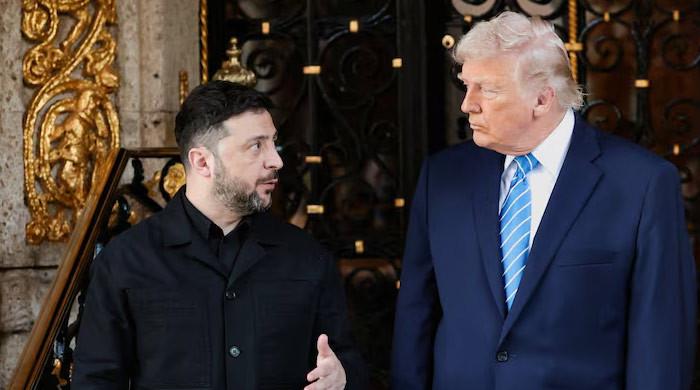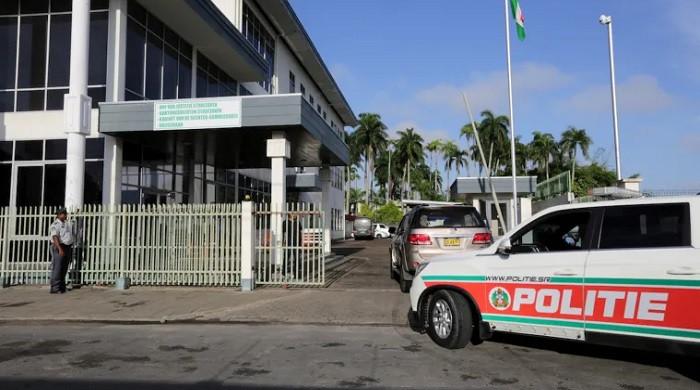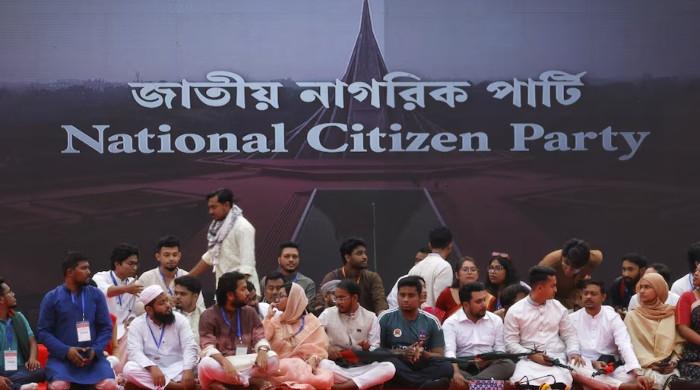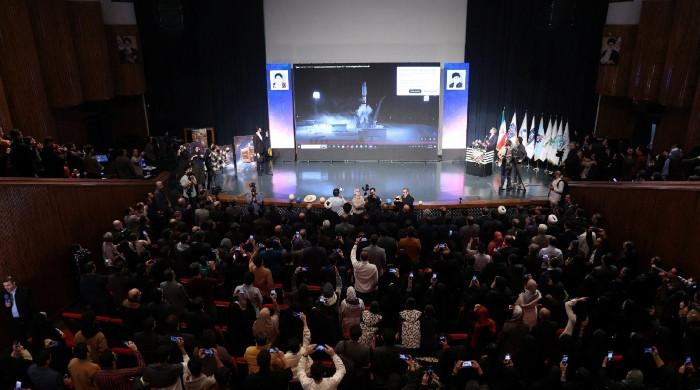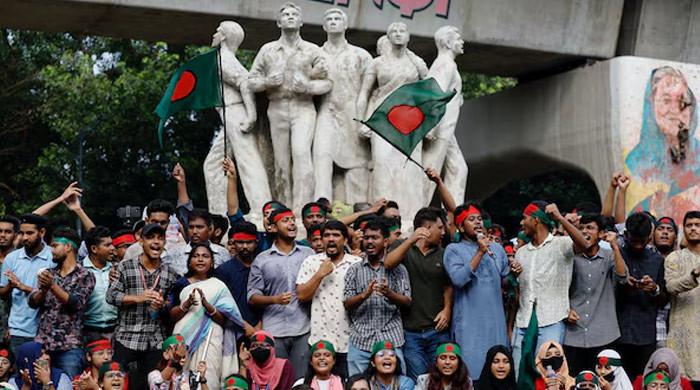US State Dept shows 'concern' over Jang Geo Media Group Editor-in-Chief's arrest
'Press freedom, due process, and the rule of law are pillars of every democracy,' the State Department's Alice Wells says
March 13, 2020
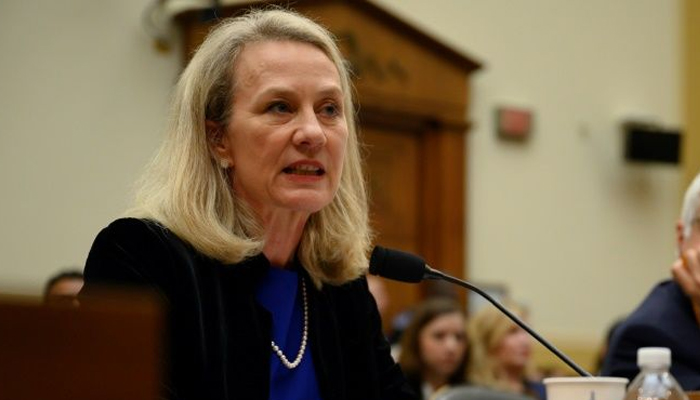
WASHINGTON: The US Department of State said it was concerned over the arrest of Jang Geo Media Group Editor-in-Chief Mir Shakil-ur-Rahman, who was detained by the NAB a day earlier in relation to a property he had purchased from a private party 34 years ago.
In a statement, Alice G. Wells, Principal Deputy Assistant Secretary at the State Department's Bureau of South and Central Asian Affairs (SCA), said the US foreign ministry has "noted with concern the arrest of Mir Shakil-ur-Rehman, the owner of a leading media company in #Pakistan".
"Press freedom, due process, and the rule of law are pillars of every democracy," Wells added.
Curbs akin to fascist Modi's blackout in Kashmir
The government's attempts at restrictions on the Pakistani media seem to be akin to the complete communications and media blackout imposed on occupied Kashmir by Indian Prime Minister Narendra Modi's fascist administration.
The incumbent Pakistani government's replication of the Modi authoritarian model against local press for its fiercely independent journalistic ethics and neutrality would harm the country's reputation. It will also have regional and worldwide consequences on the freedom of expression.
With Pakistan currently ranking at the 142nd position (out of 180 countries) on the RSF’s 2019 World Press Freedom Index, the NAB's move to arrest Jang Geo Media Group Editor-in-Chief Mir Shakil-ur-Rahman indicates how tolerance has deteriorated in the current government's tenure.
Further, the State Department's concern over MSR's arrest by the NAB comes after various local and global rights bodies, international media watchdogs, journalists, renowned publications around the world, and artists condemned the growing curbs on the Pakistani press.
Condemnations, concerns from around the world
The Committee to Protect Journalists (CPJ) termed MSR's arrest over an "obviously drummed-up case" as "a mockery of Pakistan’s claim to be a democracy that upholds freedom of the press"
The Reporters Without Borders (RSF) said MSR's arrest was "an act of harassment against all #JangGroup journalists because they refuse to toe the gvt's line".
The All Pakistan Newspapers Society (APNS) said the move was a severe blow to the freedom of press and expression.
The Council of Pakistan Newspapers Editors (CPNE) said the NAB was "arresting individuals without enough proof only to cause harm to their reputations".
The Pakistan Federal Union of Journalists (PFUJ) said there was a strong suspicion that the NAB's actions were selective, arbitrary, and politically motivated.
The Rawalpindi-Islamabad Union of Journalists (RIUJ) termed the arrest an open attack on freedom of journalism.
The Karachi Press Club (KPC) said the arrest was unwarranted and reflected personal bias, animosity, and enmity driven to attaining some ulterior objectives. Further, the journalist fraternity of Karachi said the arrest was an attempt to gag free media, constrain its independence, and subduing the independent policies of the media houses to its whims.
The Pakistan Broadcasters Association (PBA) said such arrests were against the judgements of the superior courts and urged the government and opposition parties to immediately ensure that it was not an attempt to muzzle the criticism by the media group against them.
The All Pakistan Akhbar Farosh Federation demanded his immediate release.
The Association of Electronic Media Editors and News Directors said the arrest came "at a time when media freedom in Pakistan is already under pressure".
The Human Rights Commission of Pakistan (HRCP) said there remained "a strong suspicion that such actions by NAB are selective, arbitrary and politically motivated".




